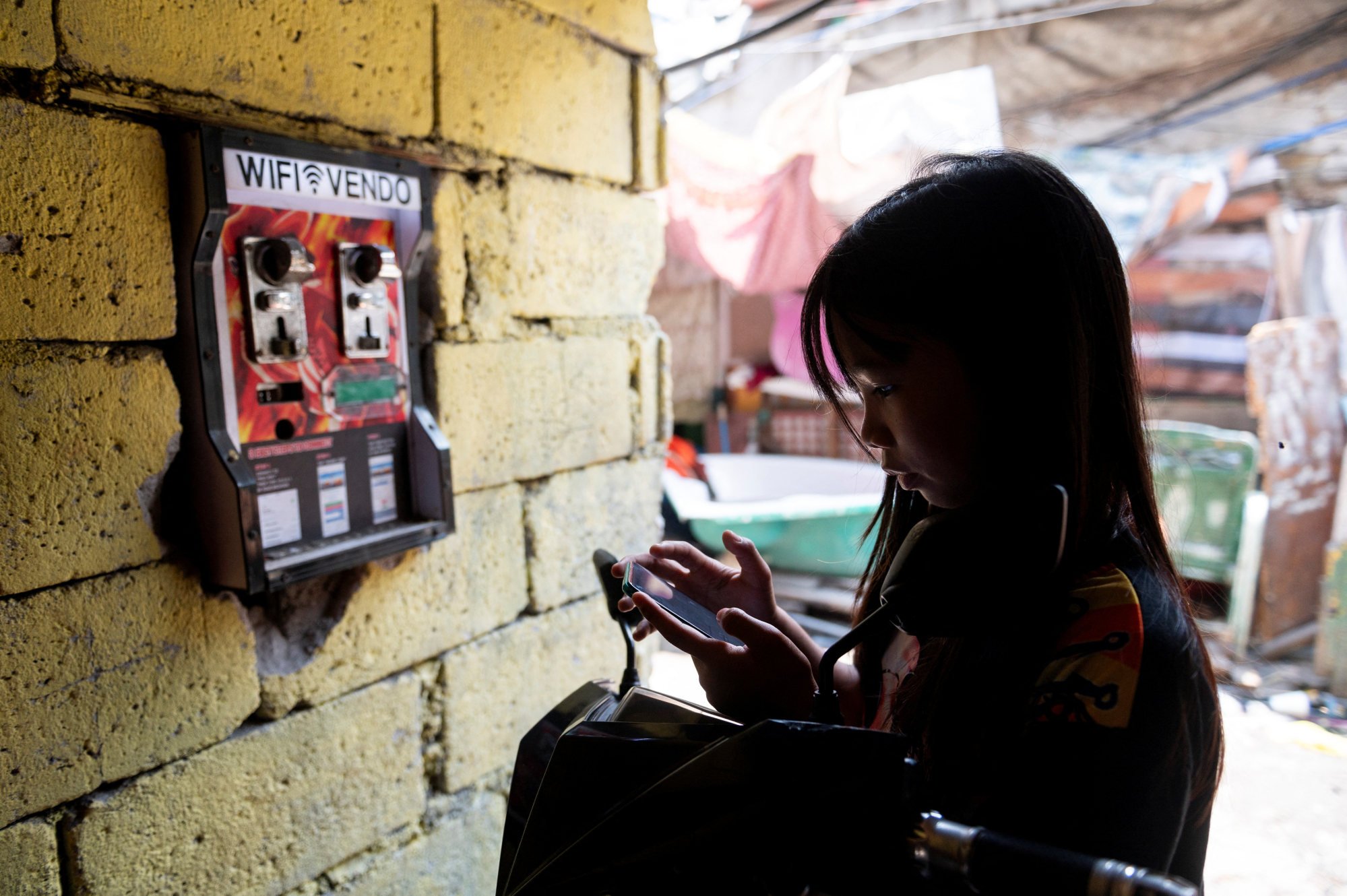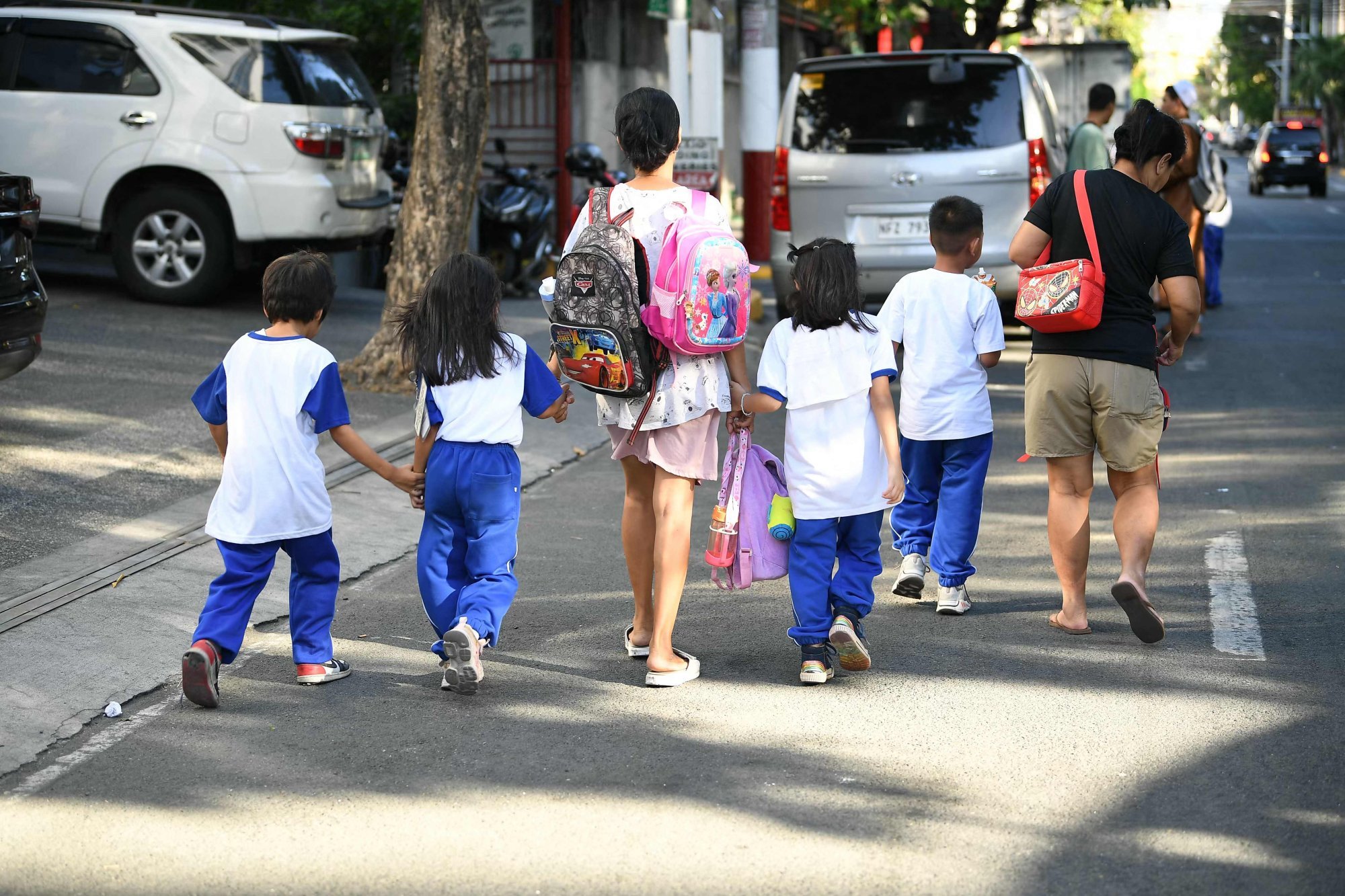Clavano added that Marcos Jnr hoped to phase out such crimes by the end of his term.
Shay Cullen, founder and vice-president of People Recovery Empowerment Development Assistance (Preda), which protects abused children and human trafficking survivors, said the surge in cases in the Philippines was partly to be blamed on internet service providers (ISPs).
Research findings recently released by New York-based rights group ChildFund Alliance’s WEB Safe & Wise Children’s Advisory Council indicate that at any time an estimated 750,000 individuals worldwide are actively seeking to exploit and connect with children online for sexual purposes.
‘Ending child rape begins today’: Philippines raises age of consent to 16
‘Ending child rape begins today’: Philippines raises age of consent to 16
Over the weekend, Kay Yeban Maatubang, communications manager for another NGO Save the Children, also warned that the Philippines ranked second in the world, after India, in terms of the number of online cases of child sexual exploitation.
India’s National Human Rights Commission reported in 2023 about 450,207 cases classified as “child sexual abuse material” online, double the figure in 2022.
On the Philippines, Maatubang said: “There have been reports of online sexual abuse and exploitation of babies as young as three months old. They come from impoverished communities and live with their relatives, who are desperate for money.
“Parents, relatives, and neighbours force these children to perform sexual acts in front of a camera.”
Last year, the Council for Welfare of Children in the Philippines recorded 17,681 cases of violence against children that included online sexual abuse and exploitation, according to executive director Angelo Tapales.

‘The wrong mentality’
“There is a wrong mentality that children should contribute to the income of the family, that’s why they think it’s OK to take photos or videos of minors to sell. There is also the wrong mentality that their children are not being physically touched,” Tapales said.
Contrary to Cullen’s claim, however, Tapales said some 9,000 websites that featured online child abuse were blocked by an unnamed local telecommunications company as part of the state’s campaign against sexual abuse and exploitation.
Cullen, meanwhile, urged law enforcement agencies to dedicate themselves to catching suspects behind online sexual abuse. He said: “This is a demand driven-crime. Mostly foreign paedophiles are involved. The crime is committed in the Philippines. Sad to say, some of the parents are cooperating to get big money. That is also the cause of the problem.
“This is a secret crime. It’s done inside the privacy of a room. All they need is a mobile phone or computers and internet connection. And they can abuse the children online for foreign customers.”
Philippines to charge US-wanted ‘Son of God’, and Duterte ally with sexual abuse
Philippines to charge US-wanted ‘Son of God’, and Duterte ally with sexual abuse
Citing 41 per cent of facilitators of child sex abuse as being biological parents and 42 per cent as relatives, Save the Children said prevention should begin at home, in schools, and in communities.
“We stand in unity with the president and the nation in combating this silent pandemic that has harmed and stolen the futures of millions of Filipino children,” Maatubang from Save the Children added.
An enforcement issue
Asked whether they had reached out to the government on the matter, Preda’s Cullen said his group had been urging authorities to control the ISPs under the National Telecommunications Commission.
“They are not implementing the law. The law demands that ISPs install blocking software,” he said, referring to the Anti-Child Pornography Act of 2009 that aims to protect children from exploitation and abuse.
Under the law, offenders may face a maximum sentence of 40 years’ imprisonment and a fine of 2 million pesos (US$34,670).

The SaferKidsPH, an organisation that works to ensure that children are safe and protected online, reported that the Department of Justice’s Office of Cybercrime had received 579,006 tips in 2018 on the online sharing, re-sharing, and selling of child sexual abuse images and videos.
In 2019, 418,422 cyber tips were recorded, but there was a 260 per cent increase the following year since the start of the lockdown due to the pandemic.
Reached for comment, Carlos Conde, a senior Asia researcher for Human Rights Watch, told This Week in Asia that enforcement was needed.
“First, I think it is commendable that Marcos is saying something about this problem very publicly. He obviously needs to marshal all of the government’s resources to make this promise a reality,” Conde said.
“Sex abuse of children is, in general, a complex issue. It is made more complicated by the fact that it is not a simple crime – poverty is an underlying factor. The long view is that as long as poor Filipinos continue to suffer poverty, criminals will find a way to exploit them.”

